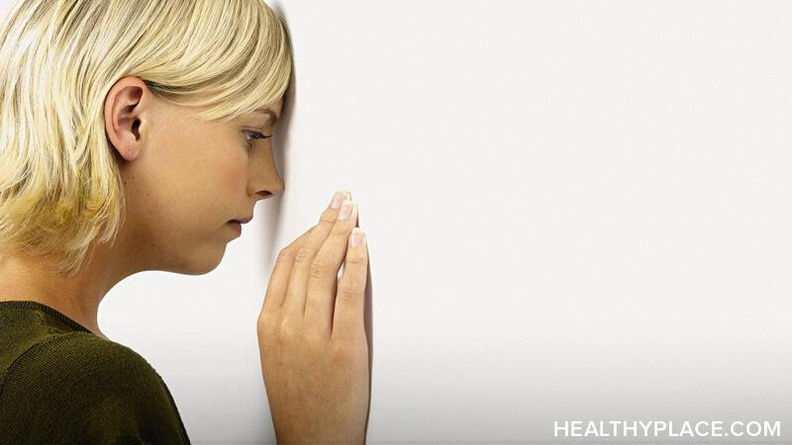What Blocks Your PTSD Recovery: A Checklist

You decide you want to heal from PTSD. You've had enough of living with high anxiety, nightmares, depression, emotional mood swings, the feeling that just stepping out of your house brings on an avalanche of overstimulation. So you pull up your bootstraps, tighten your belt, strap yourself in and take the plunge: You reach out for help, receive your diagnosis, educate yourself about treatment options, choose one, find the right practitioner, start your sessions and..... find yourself full of all kinds of contradictory feelings.
Everyone wants to make progress and have healing occur, like, yesterday. I myself was like that. However, that's not how PTSD recovery goes. There will be many bumps along the road, some placed there by others, chance and luck, while some are placed there by you.
How responsible are you being about assessing your own self-made blocks to healing?
Blocking Your PTSD Recovery is Normal
 In healing there's often natural resistance to the process. No matter how much you want to feel better it's reasonable that a part of you might get into the process and hit the brakes. Healing means:
In healing there's often natural resistance to the process. No matter how much you want to feel better it's reasonable that a part of you might get into the process and hit the brakes. Healing means:
- allowing things to come up that you've spent a lot of time and energy stuffing down
- facing your fears even thought you're terrified
- holding others accountable for how their actions have impacted your life
- holding yourself accountable for how your own actions have impacted your life
- trusting the process of PTSD recovery
- trusting the person guiding your recovery
- believing healing is possible
The list, actually, is endless. Healing throws into question many things and challenges the status quo of your PTSD lifestyle. When you find yourself resisting (or resisting more than usual), check in with yourself and answer - in writing - these questions:
1. are you ready to feel better?
2. do you want to feel better? (versus just not feeling as bad)
3. how will things change for you when you feel better?
4. what will be lost when you heal?
5. what about feeling better scares you?
6. how will your relationships change when you feel better?
7. what will you be able to do when you're recovered?
8. what won't you be able to do when you're recovered?
PTSD recovery usually slows, stalls, falters and halts because of fear. Using these eight questions - and any others you can think of - to explore recovery outcomes of which you feel fearful, and then identifying what would make these elements seem more safe, offers a very effective and hands-on approach to retaining control over both your healing process and how you feel about it.
Michele is the author of Your Life After Trauma: Powerful Practices to Reclaim Your Identity. Connect with her on Google+, LinkedIn, Facebook, Twitter and her website, HealMyPTSD.com.
APA Reference
Rosenthal, M.
(2013, May 22). What Blocks Your PTSD Recovery: A Checklist, HealthyPlace. Retrieved
on 2026, March 5 from https://www.healthyplace.com/blogs/traumaptsdblog/2013/05/blocks-to-ptsd-recovery-does-this-sound-familiar